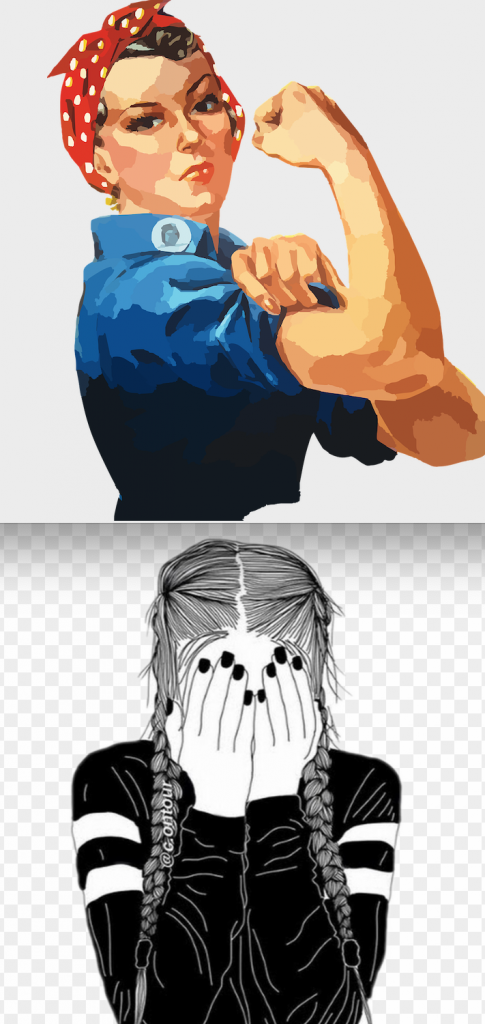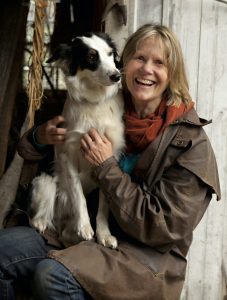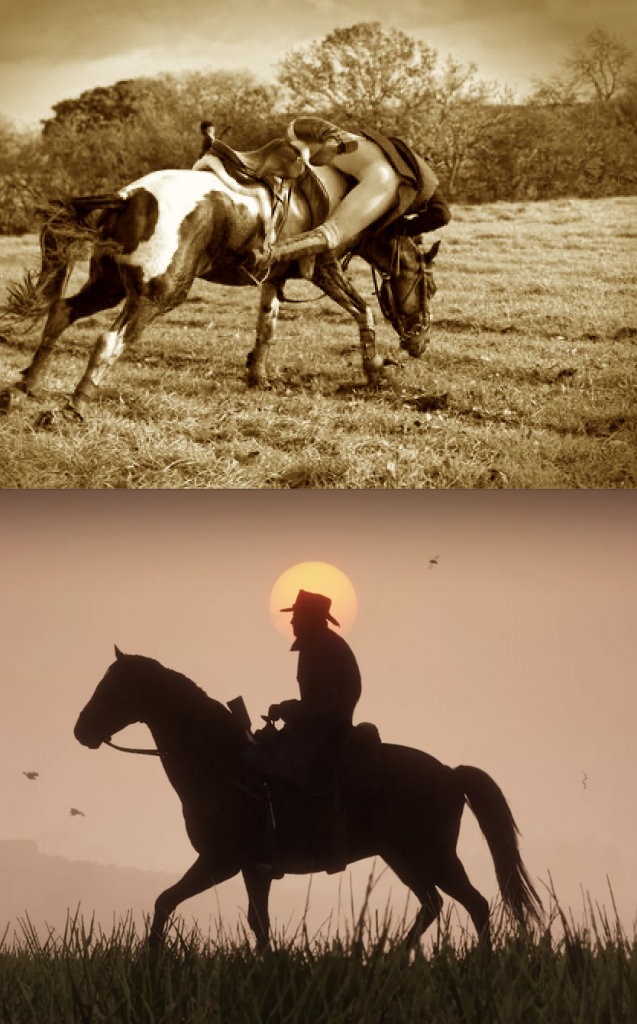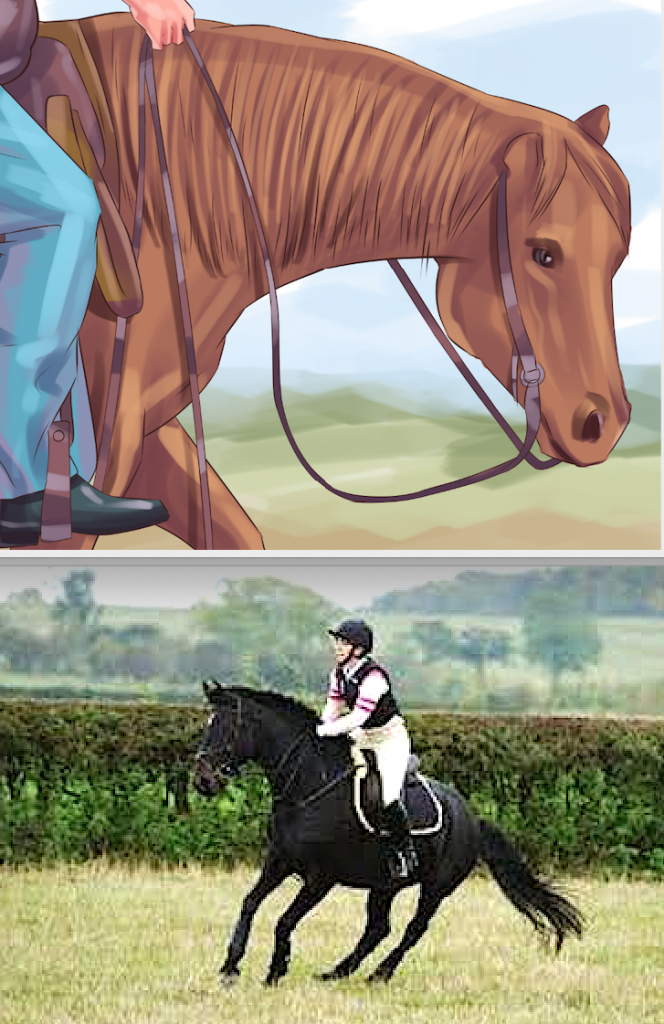
Learning about the hot-cold empathy gap may help your horse work
This is an article about calm versus chaos, basic emotional states for both horses and humans. It was inspired by a Hidden Brain discussion about the Hot-Cold Empathy Gap. and has much to do with the autonomic nervous system discussed here.
In the podcast, Shankur Vedantam explains that when we are in a calm, logical frame of mind, we cannot relate to our very same selves in an angry or fearful state. Nor do we connect with our cool, calculating selves when we’re afraid.
“Emotions completely transform us as people. So when we’re in one emotional status, it’s as if we’re a different person than we are when we’re in a different emotional state,” he said. “We regularly lack empathy for ourselves.”
This disconnect can be caused by situations as well as physiological states, like when we’re hungry, hurt, or sexually aroused.
The divergent states undoubtedly impact our actions and behavior. While the following example doesn’t relate to horse work, stick with me to see how it does:
In a research project, Dr. Julie Woodzicka of Washington and Lee University surveyed women about a prospective job interview. She told them that at some point, the male interviewer would ask inappropriate, sexually-oriented questions. What would they do?
Nearly all the women said they would respond assertively, with anger and indignation, and would likely walk out of the interview.
Dr. Woodzicka then invited other women to actually be interviewed for a job. During the interviews, conducted in a private, one-on-one setting, the male interviewer asked them inappropriate, sexually-oriented questions. Nearly none of these women balked. They answered all the questions, even the inappropriate ones, and stayed for the interview’s duration. (They were later debriefed and told that they were part of a research project.)
If you understand the hot-cold empathy gap, you can see why this odd result was, in fact, predictable.
 According to another researcher, Dr. George Loewenstein at Carnegie Mellon University and director of the Center for Behavioral Decision, we may consider two kinds of hot-cold empathy gaps as they relate to horse work:
According to another researcher, Dr. George Loewenstein at Carnegie Mellon University and director of the Center for Behavioral Decision, we may consider two kinds of hot-cold empathy gaps as they relate to horse work:
- Prospective empathy gap. You get nervous and reactionary when you attend a clinic. Looking forward, you say to yourself, it won’t be this way. It’s very likely that you’d be wrong. Researchers have found that people who’ve already experienced hot states are still bad at predicting their future behavior in a hot state.
- Retrospective empathy gap. You don’t understand how you got so frazzled at that last clinic. Looking back, you consider it an anomaly. “Our memories are faulty, especially when it comes to how intense feelings can overwhelm us,” said Vedantam.
My friend, Nina Fuller, was interviewed by Vedantam. She lives in Maine where she runs Lily Brook Farm, a 501 (c)(3) non-profit. She has a Masters in Counseling Psychology with a concentration in Equine Assisted Mental Health and uses her horses in therapy work.
Fuller recalled a time when she and her husband were living in Washington D.C. She needed extra money and answered an advertisement for what seemed like on-the-job massage training. On her first (and last) day, she was put in a room, alone, with a male client who wanted more than a simple massage. How she acquiesced has troubled her for decades.
Vedantam summarized Fuller’s response: “She did not act assertively when she was frozen in place by embarrassment and shock.”
Fuller’s actions were incongruent with what she would have imagined she’d do in that situation. Even after it happened, for years, they didn’t make sense to her. She’s just now learning how surprise, fear, and shock affect one’s ability to act in the moment.

Nina Fuller
Just as we are consistently terrible at predicting how we’ll behave in a different emotional state, we also struggle to relate to other humans when they’re in a hot state and we’re in a cold state. Or vice versa. The result is that we unfairly judge ourselves and others. In the case of us riders, we unfairly judge our horses, too.
Here’s a scenario:
My new horse, Barry, and I have been working on our partnership. The eight-year old gelding came from a sorry situation and is a nervous guy. After several months of quiet ground work and riding in my dry lot, we’d been enjoying getting out on the trail.
During trail rides, I practice bending him and asking him for a one-rein stop at a walk and trot. We also trot and lope in big circles. I ask him to back, move his hind quarters, and sidepass. It’s been great! If his ears, his breathing, and his licking and chewing are any indication, I’d say he’d agree. We feel connected, confident, and calm.
But that all changed during out incident:

Different scenarios beget different emotional states
We were returning from a pleasant, two-hour ride. I had left a water bottle on a fence post and I stopped to pick it up. Barry made strange with this action and with the new, metal object just out of his field of vision. He started running. For 100 feet, I stayed calm, but juggled the water bottle as I tried to slow him. I could feel him surge with energy as he moved into a panicked gallop. We raced towards a fence, where he’d have to go left or right. Left he went and off I came.
I collected myself, collected Barry, and remounted. We rode for another 30 minutes, trying to return to a more relaxed and connected state.
Afterwards, I chided myself:
Where was that quick and ready one-rein stop?
Why hadn’t I immediately dropped the water bottle? Doing so would have given me two free hands AND eliminated what Barry’s concern.
Why had Barry freaked out and ignored my direction (such as it was)?

Can we navigate hot and cold states equally well?
We might have been handling ourselves well in calm, controlled situations. But when the sh*t hit the fan, neither of us were able to quickly adjust. After the wreck, this weird, scary incident seemed to have no association with the partnership we’d built.
Hello, hot-cold empathy gap.
Later in the program, Vedantam interviews Anastasia Fish, a second lieutenant in the US Army. She explained her training to become an Army Ranger. The military calls one element of it ‘stress inoculation.’ It involves repeated training under duress. Soldiers learn to function well in high-stress situations.
Steve Peters remembers similar training from his time in the Navy. “We were put in highly stressful situations,” he said. “But if we knew that we had a route, an action to complete, it was harder to be a victim of panic.”
When horses are in the sympathetic nervous system of fight, flight, or freeze, they will do whatever seems to be the right thing to survive in that moment. We can teach them other options. More importantly, we can teach them to self-regulate and find safety in hot states. But we must practice in calmer, more controlled settings first.
Says Peters, “horses don’t know how to emotionally self-regulate, especially in aroused settings, at which point they will be victims of their neurochemical state and default to flight, fight, or freeze. But if we show the horse to mentally find safety during multiple training sessions of lower pressure, ie, calmer settings, he will experience self-regulation. With more practice and increasingly higher pressure, he will learn to find safety as his new default.”
When we can practice in increasingly stressful environments, we can build agility and confidence. Certainly, Barry and I have a new To Do list:
- We need to practice going fast without panic.
- We need to practice handling odd objects.
- We need to practice stops from faster speeds.
These are all exercises we can do first in calm settings and then in increasingly livelier ones until we’re more comfortable in hot states.
Love this. Great example of how to not blame the horse or the trainers skill and focus on action steps to reduce possibility of future occurrence.
Oh my goodness, this explains a lot of questions I had for myself. It helped to explain why I sometimes don’t actually do things the way I thought I would or practiced when a something out of the ordinary occurs. There are so many times I wish for a do-over because I think I shoulda, woulda, coulda and it happened so fast! It’s so interesting and I wonder now if being able to identify that it’s actually a thing (the hot-cold empathy gap) will help put things into perspective.
But now I have different questions. There was one time when I was about 11 or 12 years old when I experienced a fast-paced emergency in slow motion and I feel like it may have been the only time in my life when there wasn’t a hot-cold empathy gap. I found myself in a place where time and everything around me slowed down to my own heart beat.. I truly felt like I was in the present and all that mattered was saving the target, my little brother. Looking back now, I don’t know how I did it. I didn’t know what CPR was and I had superhuman strength to be able to lift him with one arm and bring him to safety. It’s so hard to believe sometimes that he is alive today because I happened to be at the right place at the right time and I’ve always said it was Devine Intervention because I actually don’t remember some of the things people who were watching said I did. Reading this article and identifying that the hot-cold empathy gap is real makes me wonder now how it relates to my 11-year old experience. It explained so many questions for me currently, but now it’s opening another can of thoughts and questions! What was it, about THAT time, that closed the gap? And how can I duplicate that?… because it was truly a miraculous moment. Thank you for the article!!! It’s very thought-provoking and can’t wait to implement the suggestions.
Wonderful comment, April. There are a few research articles and non-research-y articles around how time feels slowed down. It might be off-topic, but this essay by David Foster Wallace talks about a pro athlete’s ability to get into a flow, which, I think, is related https://ialjs.org/wp-content/uploads/2017/01/Wallace_FedererAsReligiousExperience_NYTimes_20Aug2006.pdf
Good article! I LOVE Hidden Brain… long time listener. Just this weekend I experienced Empathy Gap. Took a very long drive to TX to buy a new (to me) trailer. Packed up from the hotel where I’d spent the nigh ready to go look, buy, and get back on the road for the 12 hr drive home and my truck refused to start…. to make a long story endless… the seller picked me up, we had truck towed to her diesel shop and we went to breakfast, chit chatted, got friendly and waited. And waited. And… I was really stressed… it was Friday. Could it be fixed today? Could I get home? Should I rent a car? Will I be here all weekend? I had my dogs with me… we left them in her yard, ran errands, checked with the mechanic… no word. We looked at the trailer.
Honestly… I was disappointed. I’d asked about rust and was told, “Nothing that you can’t rub out with a Brillo pad and hit with some Rustoleum. It was way more than that. There were a number of other things. It was rougher than I’d anticipated. I SHOULD have bargained. But I was so out of balance! I was super stressed about my truck, being out of control of my situation 600 miles from home, the unknowns, the expense, nothing was close… and it was Friday! Also, she was so nice, she had things to do and was toting me around with her.
I bought the trailer. I didn’t negotiate!!! And, I beat myself up all the way home and for the next couple of days, especially when I got home, pulled the mats and kept noticing other little things that need fixing. Why didn’t I bargain???? What was I thinking? Arghhhh! I had a real hard time letting it go.
All in all, it WILL be a great trailer for me. It has the features I wanted. Ultimately, I’m very grateful that at the end of the day, the amount I could have negotiated won’t break me. And we all made it home safely. Looking back though, the Empathy Gap was exactly what was happening, and, I could have done without the beating.
YES! When I was listening to this episode, I was thinking about the horse I rode that went from zero to bat-sh&# crazy in the blink of an eye. She was startled by a couple of mules in the neighboring field, but they were side-by-side and probably looked like a monster. I too went left while she went right. As I’m testing all the body parts on the ground, she’s playing kissy face with the mules through the fence. My head did none of the things I had trained to do during the melee. It happened again a few weeks later with more provocation. A tractor roared to life around a corner. Thankfully, she’d had some more training and I was more prepared to keep my wits about me. However, this time I had another hurdle. I was one rein stopping too hard and am EXTREMELY thankful that a lifetime rider and NRCHA expert (to show why I should listen to him) saw that we were about to go over backwards and calmly, firmly, and loudly told me to let up. I did not stand on my less-than-a-decade experience and allowed my brain to be brought back to a cooler state. This time, I stayed on and a good thing too since we were on concrete. Reminds me of the Hidden Brain “Moral Combat” episode I referenced over at the Best Horse Practices blog. It is SO hard to use our brain correctly in the heat of the moment AND when we are sure we are doing the right thing. Since the start of my horse journey, I’ve known that I had a lifetime of learning ahead, but I’ve also learned that it takes some examining of our own brain science to partner with horses.
Thanks, as always, for bringing these matters into perspective.